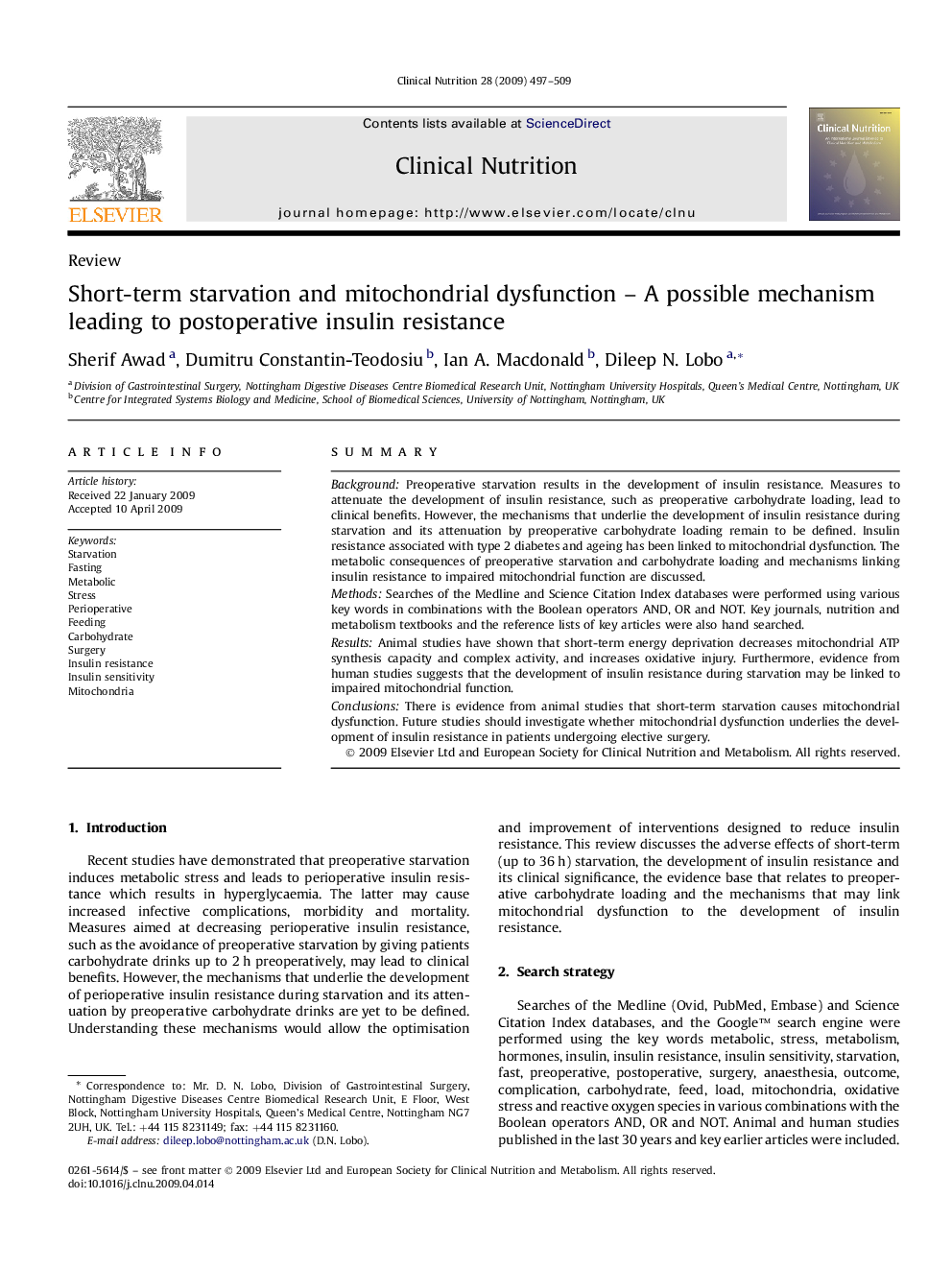| Article ID | Journal | Published Year | Pages | File Type |
|---|---|---|---|---|
| 2689904 | Clinical Nutrition | 2009 | 13 Pages |
SummaryBackgroundPreoperative starvation results in the development of insulin resistance. Measures to attenuate the development of insulin resistance, such as preoperative carbohydrate loading, lead to clinical benefits. However, the mechanisms that underlie the development of insulin resistance during starvation and its attenuation by preoperative carbohydrate loading remain to be defined. Insulin resistance associated with type 2 diabetes and ageing has been linked to mitochondrial dysfunction. The metabolic consequences of preoperative starvation and carbohydrate loading and mechanisms linking insulin resistance to impaired mitochondrial function are discussed.MethodsSearches of the Medline and Science Citation Index databases were performed using various key words in combinations with the Boolean operators AND, OR and NOT. Key journals, nutrition and metabolism textbooks and the reference lists of key articles were also hand searched.ResultsAnimal studies have shown that short-term energy deprivation decreases mitochondrial ATP synthesis capacity and complex activity, and increases oxidative injury. Furthermore, evidence from human studies suggests that the development of insulin resistance during starvation may be linked to impaired mitochondrial function.ConclusionsThere is evidence from animal studies that short-term starvation causes mitochondrial dysfunction. Future studies should investigate whether mitochondrial dysfunction underlies the development of insulin resistance in patients undergoing elective surgery.
